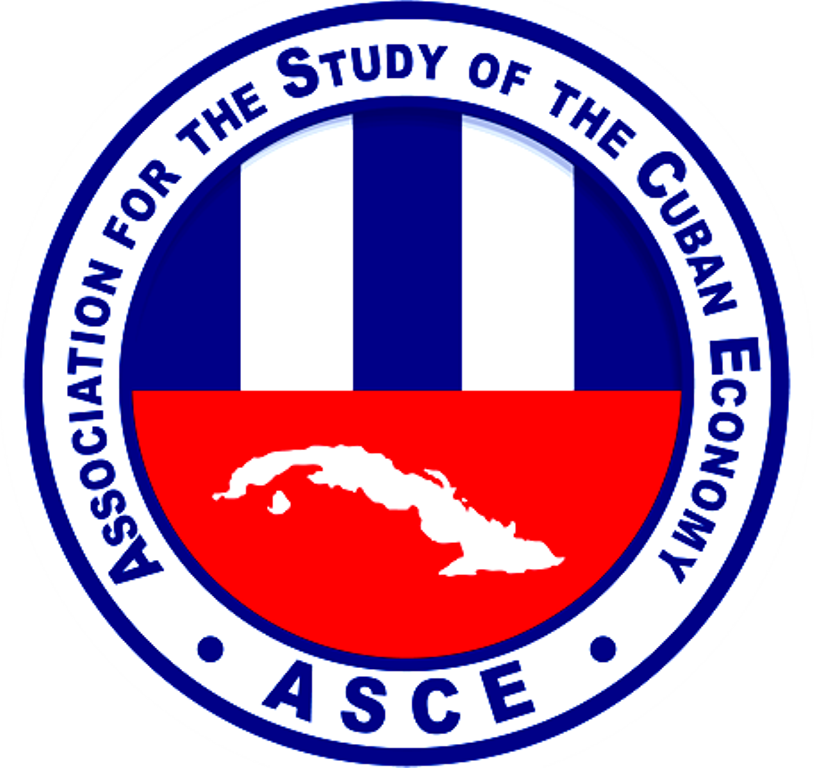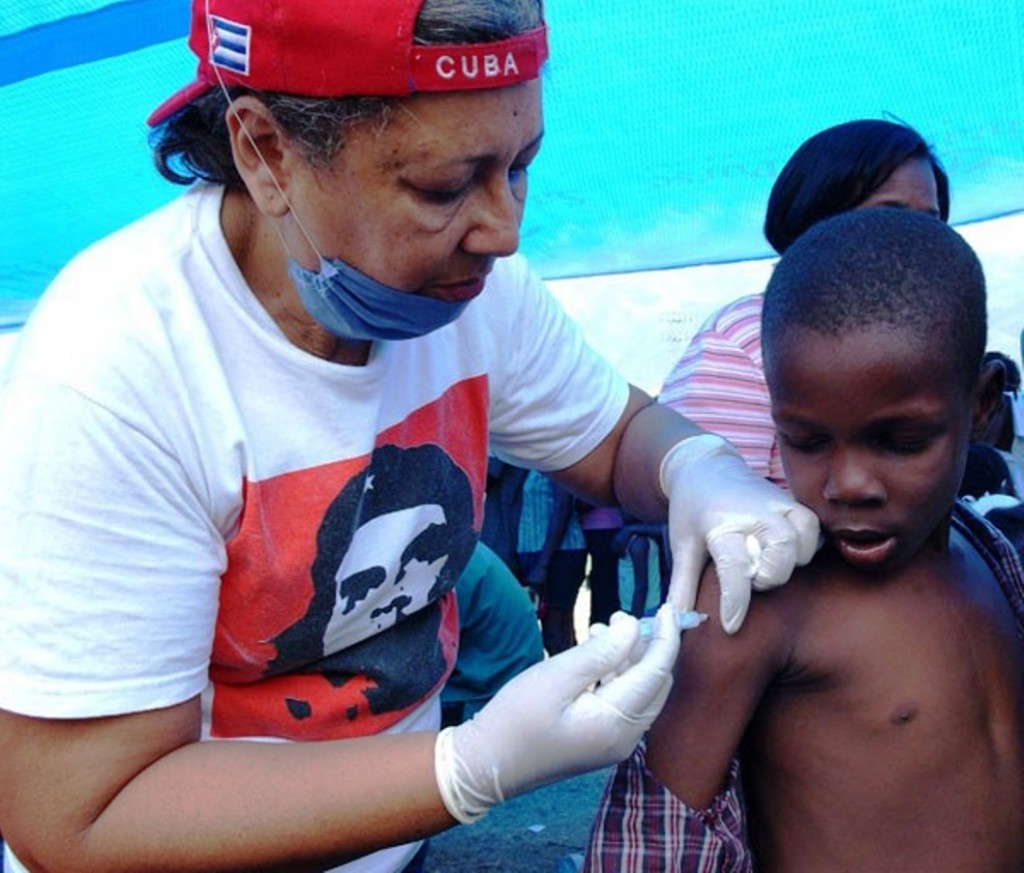The papers presented at the 2014 Conference of the Association for the Study of the Cuban Economy are now available.
Cuba in Transition: Volume 24: Papers and Proceedings of the Twenty-Fourth Annual Meeting.
The papers listed below are hypewr-linked to directly to their respective file on the ASCE web site.
- Preface
- Conference Program
- Table of Contents
- Cuba’s Perplexing Changes: Is the Society in Crisis? Joaquín P. Pujol
- The Cuban Economy 15 Years Later—On Firmer Ground, But Much Still To Do Gary H. Maybarduk
- “Reformas Raulistas”: Apuntes Para un Balance Miriam Celaya
- Where Are We? The State of Negotiation of a New Treaty Between the European Union and Cuba Martin Palouš
- Political Implications of Recent Economic Reform Trends in Cuba: The 2014 Status Vegard Bye
- Cuba: Tres Fábulas Sobre las “Actualizaciones” Raulistas Rolando H. Castañeda
- The Cuban Communist Party: Current Status and Future Reform Larry Catá Backer
- Cuba 2014: A Different Perspective on Cuba’s “Structural” Reforms Roger R. Betancourt
- Comments on “A Different Perspective on Cuba’s ‘Structural’ Reforms” by Roger R. Betancourt Jorge A. Sanguinetty
- Reclamaciones por Propiedades Expropiadas en Cuba: Informe de Recomendaciones Legales Rolando Anillo, Esq.
- U.S. Socialism in Cuba: Implications of Prohibiting the Private Sector at Guantanamo Bay Michael J. Strauss
- New Opportunities for Business and Investment by Americans in Cuba under the Economic Opening Antonio R. Zamora
- The Position of Cuba’s Independent Trade Unions on Foreign Investment — The Special Economic Development Zone Mariel (ZDEM) Victor Manuel Domínguez García
- Self-Employment in Cuba: Results of a Survey Maybell Padilla Pérez
- El Pequeño Sector Privado en Cuba: Una Incógnita por Descifrar Osmar Laffita Rojas
- La Unificación del Tipo de Cambio: El Caso Cubano Augusto de la Torre y Alain Ize
- Cuba’s Currency Unification: Step-by-Step and Tensions Domingo Amuchástegui
- ZEDM: Una Estrategia Audaz pero Todavia Incierta al Futuro Emilio Morales
- La ZEDM: Un Proyecto Dependiente de las Libertades Fundamentales Dimas Castellanos
- Investment Incentives of the ZED Mariel: Will Foreign Investors Take the Bait? Jorge F. Pérez-López
- The Institutional Structure of Production in the Cuban Economy Ernesto Hernández-Catá
- Cuba’s Growth Strategy: Human Capital and Foreign Investment Luis R. Luis
- A Simple Growth Model of the Cuban Economy Carlos Seiglie
- Apuntes Breves sobre Algunos Desafíos Cubanos Lenier González Mederos
- Oposición Cubana: Una Mirada al Futuro Roberto Veiga González
- La Oposición y el Poder Autoritario: Apuntes a Propósito de la Situación Cubana Armando Chaguaceda
- Cuba: Apuntes Para el Debate sobre Oposición Leal y Soberanía Desde el Derecho Internacional y el Modelo de la Declaración Universal de Derechos Humanos Arturo López-Levy
- The Concept of a “Loyal Opposition” in the Cuban Context Archibald R. M. Ritter
- Self-Employment in Today’s Cuba: Quantitative Expansion Amid Qualitative Limitation Ted A. Henken and Archibald R.M. Ritter
- Self-Employment in Cuba since the VI Party Congress Mario A. González-Corzo and Orlando Justo
- La Hoja de Rescate de un Sistema de Salud Defraudao Juan Tomás Sánchez
- The Port of Mariel and Cuba-Brazil’s Unusual “Medical Cooperation” María C. Werlau
- Comentario al Trabajo de María Werlau: “El Puerto de Mariel y la Cooperación Médica Cuba-Brasil” Jorge Hernández Fonseca
- Cuba en Transicion y las Relaciones Cuba-Estados Unidos Miriam Leiva
- Does Cuba Have a Future in Manufacturing? Archibald R. M. Ritter
- Cuba’s Evolving Agricultural Import Patterns William A. Messina, Jr.
- El Mercado Libre Campesino Hildebrando Chaviano Montes
- Cuba, Un Nuevo Modelo Económico o ¿Capitalizar el Entusiasmo de la Integración Latinoamericana? Dariela Aquique
- Los Cambios en Cuba Hacia un Verdadero Desarrollo Humano Integral Jorge Ignacio Guillén Martínez
- Cuba y Su Comercio Internacional Orlando Freire Santana
- Inversiones, ¿Para Qué? Orlando Luis Pardo Lazo
- Cuba: Assessment of the New Tax Law of 2012 Lorenzo L. Pérez
- Steps to Economic Normalization with Cuba: A Roadmap for US Policymakers Gary Hufbauer, Barbara Kotschwar, and Cathleen Cimino
- La Ley Cubana de la Inversión Extranjera: ¿A Quién Debe Servir? José Manuel Pallí
- Comentarios a “La Nueva Ley de Inversión Extranjera Cubana” de José Manuel Pallí Jorge A. Sanguinetty
- Réplica a Sanguinetty José Manuel Pallí
- La Evolución del Derecho Civil Cubano y la Ley De Inversión Extranjera en Cuba: Un Camino por Recorrer María Elena Cobas Cobiella
- La Nueva Ley de Inversión Extranjera y la Vulneración de Derechos Humanos Yaremis Flores
- Los Derechos Laborales en Cuba Frente a la Ley de Inversión Extranjera Jesús R. Mercader Uguina
- Cultural Policy, Participation and the Gatekeeper State in Cuba Yvon Grenier
- Internet, Cine Independiente y Actualización Económica Soren Triff
- Personal Networks and Party Affiliation in Status Attainment Processes in Cuba: How Do Individuals End Up in Economically Profitable Positions in Emergent Sectors? Sara Romanò
- El Reflejo del Presente Proceso de Reformas — “Actualización” — en la Prensa Cubana Vicente Morín Aguado
- La Exportación del Control de Estado: Más Allá De la Batalla de Ideas Juan Reinaldo Sánchez
- El Socialismo del Siglo XXI: Exportación Cubana Carlos Sánchez Berzain
- Cuba’s Housing Situation: A Perspective from the 2002 and 2012 Censuses Sergio Díaz-Briquets
- El Nuevo Programa de Desarrollo Local y Comunitario (PDLC) desde la Dimensión Sociocultural: Objetivos y Trascendencias Rosendo Romero Suárez
- Appendix A: About the Authors







